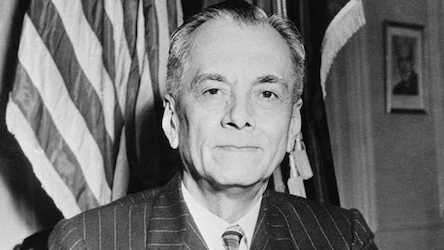
Manuel Luis Quezon y Molina (1878-1944, age 66) was a Filipino statesman, soldier, and politician who served as the first president of the Commonwealth of the Philippines from 1935 until his death in 1944.
Born on Luzon in the Philippines, Quezon studied law at the University of Santo Tomás in Manila. He initially fought against U.S. rule but later advocated for Philippine independence through cooperation with the United States.
Quezon’s political career included roles as:
- Governor of Tayabas (later Quezon) Province (1905-1907)
- Representative in the Philippine Assembly (1907-1909)
- Resident Commissioner to the U.S. House of Representatives (1909-1916)
- President of the Philippine Senate (1916-1935)
As president, Quezon tackled issues such as land reform, military reorganization, and economic development. He established a government-in-exile in the U.S. during World War II.
Key achievements:
- Played a major role in securing the Jones Act of 1916, which pledged eventual independence for the Philippines
- Fought for the Tydings-McDuffie Act of 1934, which provided for Philippine independence after a 10-year transition period
- Reorganized the islands’ military defense with U.S. Gen. Douglas MacArthur as special adviser
Quezon died of tuberculosis in New York, in 1944. He was posthumously awarded the Wallenberg Medal in 2015 for his efforts to help Holocaust victims from 1937 to 1941.
Quezon City in Manila is named after the president.